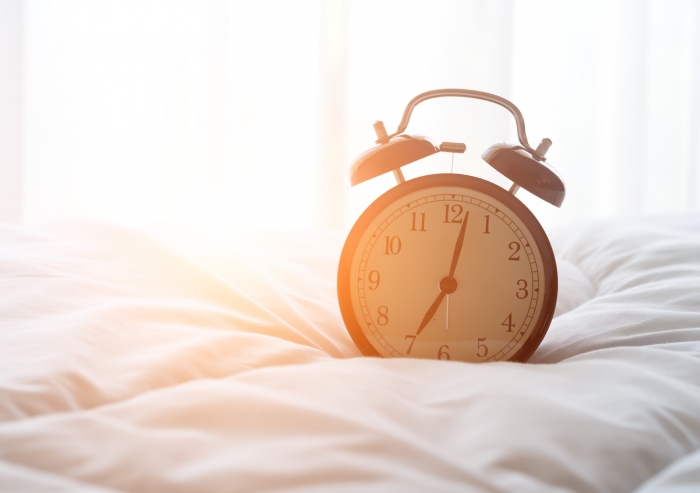Last summer, Ashif, a university athlete, decided to push himself beyond his normal best and train for a tough new challenge. He upped his daily routine, putting in extra hours of practice and exceeding his normal workout intensity. Within hours his body was hurting all over.
Ashif accepted the pain as a reaction to the heavy workouts, but he also noticed other symptoms. Within a few days, he had constant dry mouth. He was constipated and his heart rate was higher than normal. His nights were sleepless, he was irritable and he was suffering from muscle cramps. It seemed as though all the extra workouts were causing him more harm than good.
But while Ashif had intensified his workout, he had not increased his fluid intake. He had failed to account for the strain of his extra exercise, and the resulting fluid deficit was wreaking havoc with his body. When fellow athlete Salimah pointed out that he was dehydrated, Ashif started taking extra fluids to make up for the deficit, and within a couple of days, he was back to his normal energetic self.
Why is hydration so important?
As the Jubilee Games approach, Ismaili athletes around the world are spending countless hours training. But some underestimate their sweat loss, and do not drink enough water to prevent dehydration.
Water regulates body temperature, lubricates joints and helps transport nutrients and energy throughout the body. When dehydrated, an athlete is more prone to experiencing side effects like those that Ashif went through.
During exercise, the muscles generate heat energy. That energy has to be dissipated in order to keep the body from overheating. The body accomplishes this by sweating — as the sweat evaporates, it cools the body down. This process results in dehydration.
“For every pound of sweat you lose that’s a pint of water you’ll need to replenish," said John Batson, MD, a Sports Medicine specialist in South Carolina and volunteer with the American Heart Association. “If you’re well hydrated, your heart doesn’t have to work as hard.”
Research demonstrates that just being 2 per cent dehydrated can impact normal body functions. Losses greater than 5 per cent can impair athletic performance by 30 per cent, and dehydration at a higher level can lead to more serious issues ranging from swollen feet to headaches, to life-threatening situations such as heat illness.
Heat illness occurs when a dehydrated body is unable to cool itself effectively during exercise, or in hot or humid weather. It progresses in three stages, each more serious than the last: heat cramps, heat exhaustion and heatstroke.
Without treatment, heatstroke can lead to loss of consciousness, seizures, or death. If at any time a person feels extremely hot, their heart starts beating very fast and hard, or they start feeling dizzy or disoriented, seek emergency medical assistance immediately.
How much fluid is enough?
Knowing the rate at which you sweat can help you close the fluid deficit without drinking more than you need. A simple yet effective way to measure fluid loss is to compare your weight immediately before and after working out.
Start by weighing yourself before your exercise session — preferably with an empty bladder. At the end of your workout, towel off any excess sweat and weigh yourself again. Any weight change can be attributed to a loss of fluid. By monitoring your sweat losses regularly, you can gain insight on how much fluid you need to stay hydrated.
Replenish with water — it remains the best option. Other drinks, such as fruit and vegetable juices, milk and herbal teas, as well as fruits and vegetables like watermelon, tomatoes and lettuce can also help you stay hydrated by contributing to your overall fluid intake. Up to 30 per cent of your fluid intake may come from foods, but most comes from fluids.
Sports and energy drinks
Water is the best choice, but for more active athletes who engage in intense workouts lasting longer than an hour, a sports drink may be helpful. Good sports drinks contain carbohydrates and electrolytes that can increase energy and help the body absorb water.
If you choose to consume a sports drink, choose wisely. They can be considerably high in carbohydrates from added sugar, and may have high levels of sodium, caffeine and other additives.
Choose a sports drink with no more than a 6 – 8 per cent carbohydrate formulation. A greater concentration of sugar (carbohydrate) will slow your stomach from emptying and potentially cause bloating. An appropriate sodium concentration of 0.4 – 1.2 grams per liter will help with fluid retention and distribution, and decrease the risk of muscle cramping.
Remember that sports drinks are not the same as energy drinks. Most energy drinks are heavily laden with caffeine, sugar and other stimulants which your body does not really need.
Interested in making your own homemade sports drink? Follow this recipe.
Tips for staying hydrated
» Keep a water bottle with you during the entire day and drink from it regularly. “Your brain is made up of mostly water, so staying hydrated will help you to perform at your peak,” says Arif Nathoo, a former women’s volleyball coach and Athletics Hall of Fame inductee at Ryerson University. “Use a reusable water bottle that has measurements on the outside of the bottle so you can track your intake.”
» For some, drinking fluids on a schedule — such as at breakfast, lunch and dinner, or at every hour — is a great way to ensure that they remain hydrated. Add a slice of lemon or lime to vary the flavour if necessary.
» To maintain optimal hydration, the American College of Sports Medicine recommends drinking 16 – 20 ounces (500 – 750 milliliters) of fluids in the two hours before starting exercise, another 4 – 8 ounces (125 – 250 milliliters) should be taken in every 15 to 20 minutes during exercise, and afterwards, 24 ounces (1000 milliliters) should be drunk for every pound of body weight lost during exercise.
» Leslie Bonci, author and sports dietitian to several professional and college sports teams, tells athletes that when it’s time to cool off they shouldn't rely only on pouring water on their heads — fluid has to get in the body as well. She also recommends gulping rather than sipping water during an activity, which promotes emptying of the stomach.
References
- FamilyDoctor.org, Athletes: The importance of good hydration. (2015, March).
- Casa, D. & Albohm, M.J. (2010). Heat Illnesses in Sports.
- Centers for Disease Control and Prevention. Water: Meeting Your Daily Fluid Needs.
- Hydration: Why It's So Important.
- American Heart Association, Staying Hydrated Staying Healthy
- Clark N., Sports Nutrition Guidebook. 4th ed. Champaign, IL; Human Kinetics; 2008.
- Cleveland Clinic, Avoiding Dehydration, Proper Hydration
- Breaking Muscle, Why and How to Stay Hydrated
- US News Tips on Hydration from Sports Dietitians
- National Federation of State High School Associations, Position Statement and Recommendations for Hydration to Minimize the Risk for Dehydration and Heat Illness
- Sawka, M.N., Burke, L.M., Eichner, E.R., Maughn, R.J., Montain, S.J., & Stachenfeld, N.S. (2007). American College of Sports Medicine position stand. Exercise and fluid replacement. [Abstract]. Med Sci Sports Exerc., 39(2), 377-390









